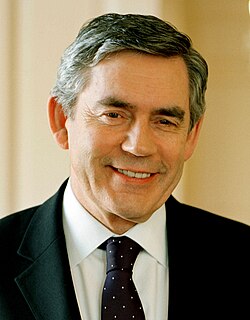Gordon Brown: A Look at His Legacy and Continued Influence

Introduction
Gordon Brown, the former Prime Minister of the United Kingdom, remains a significant figure in British politics, even years after his tenure ended in 2010. His leadership during the global financial crisis, policies on education, and advocacy for global health are critical topics that shape discussions on contemporary governance and international relations. The relevance of his insights and experiences has been brought to the forefront in recent debates surrounding economic recovery and public policy.
Brown’s Political Journey
Born on February 20, 1951, in Giffnock, Scotland, Brown embarked on his political journey as a member of the Labour Party. He served as Chancellor of the Exchequer from 1997 to 2007, where he was instrumental in the implementation of key economic policies, including the introduction of the minimum wage and increases in public spending on education and health services. His rise to Prime Minister in 2007 came during a period when his economic stewardship was widely praised. However, his leadership faced fierce criticism with the onset of the financial crisis in 2008.
Responses to the Financial Crisis
Brown’s response to the economic downturn, which included the £500 billion bank bailout and fiscal stimulus packages, has been both lauded and scrutinised. Proponents argue that his actions prevented a more severe economic collapse, while critics contend he did not do enough to address the underlying issues. Regardless, his policies have had lasting impacts on the UK’s approach to economic regulation.
Current Engagements and Advocacy
Since leaving office, Gordon Brown has remained active in both national and global issues. He has taken a prominent role in discussions about global health, particularly in light of the COVID-19 pandemic, advocating for equitable vaccine distribution. Recently, he has been vocal about the need for comprehensive policies to address the challenges posed by climate change and economic inequality. His foundation, the Gordon and Sarah Brown Foundation, focuses on education and international development, reflecting his enduring commitment to these issues.
Conclusion
Gordon Brown may no longer hold a formal political office, but his influence continues to resonate in discussions about economic policy, global health, and education reform. As the UK and the world grapple with post-pandemic recovery and pressing economic challenges, Brown’s insights remain invaluable. Observing his ongoing contributions provides an understanding of how past leaders shape current policies and societal norms, showing that their legacy can extend beyond their time in office.









